RO water filtration system and what you should know about it, pros and cons.
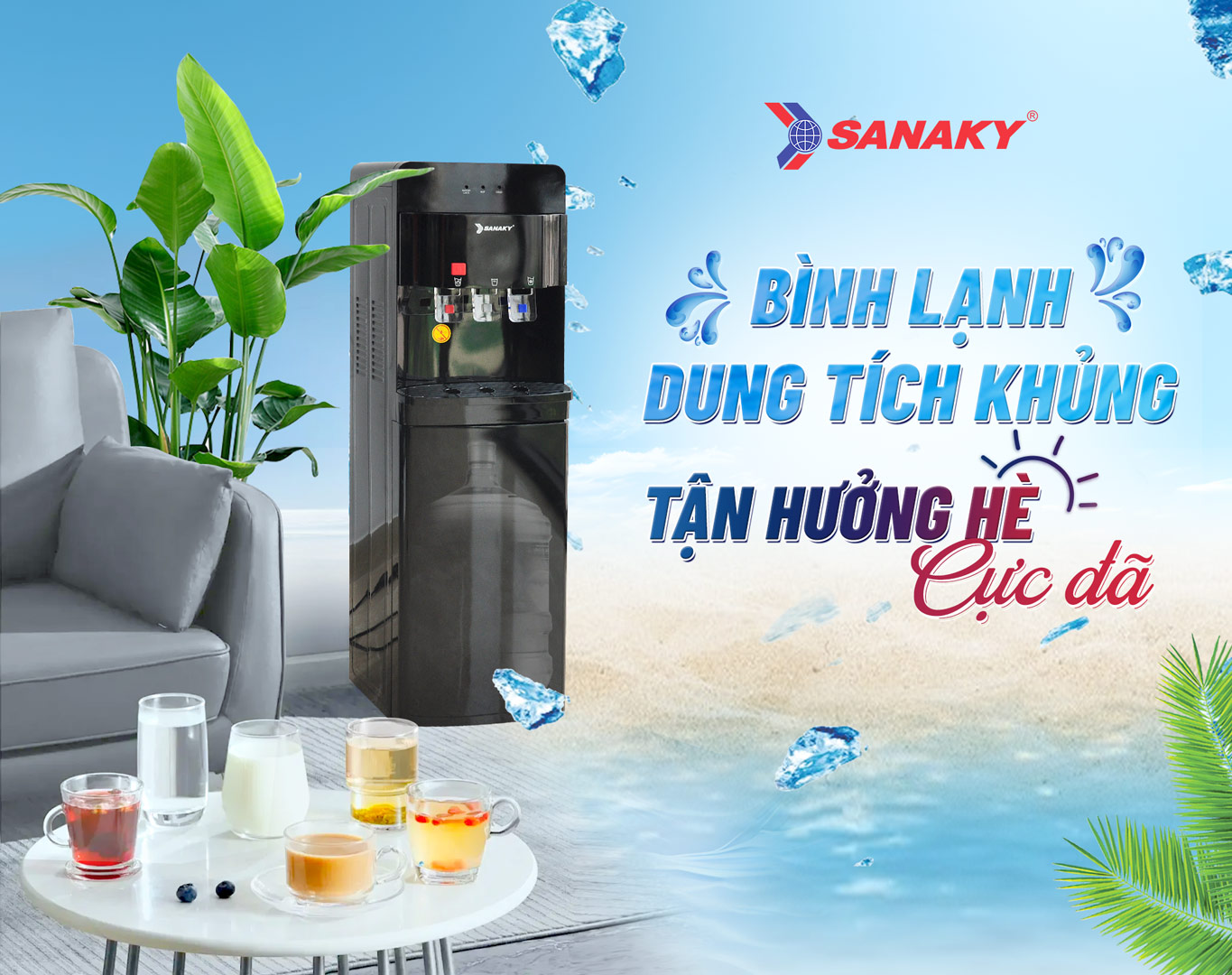
You have probably been bombarded with the ads and information about RO water filtration systems on the internet. It might trigger your curiosity as to its application and how it is superior to a regular water filtration system. Do you wonder what reverse osmosis even is, or are you concerned about what reverse osmosis water might do to your system?
In this article, We have broken down exactly what reverse osmosis filtration is and the pros and cons of reverse osmosis water filtration so you might look up to whenever you are in the process of deciding whether or not a reverse osmosis system could play an important role in your home, leading to a meaningful alternative to a quite conservative water purifier system.
First, let's dive into more detail about what the RO filtration is.
What is RO filtration?
Reverse osmosis or RO is now one of the most effective forms of water filtration which have been embedded in water purifier system ubiquitously around the world because unlike regular filtration system such as chemical or carbon filtration systems, which use certain materials to attract or directly deal with the contaminants existing in the water, reverse osmosis’s function is to push water through a microscopically small filter material.
This semi-permeable membrane has a pore size of around 0.0001 micrometers, effectively only allowing the small water molecules through and catching any larger molecules of contaminants, organic materials or even salt. Originally designed to desalinate seawater and reduce high chemical contaminant material such as heavy metals, reverse osmosis is now in use in many government, commercial, military and even residential applications.
How does a RO water filtration works
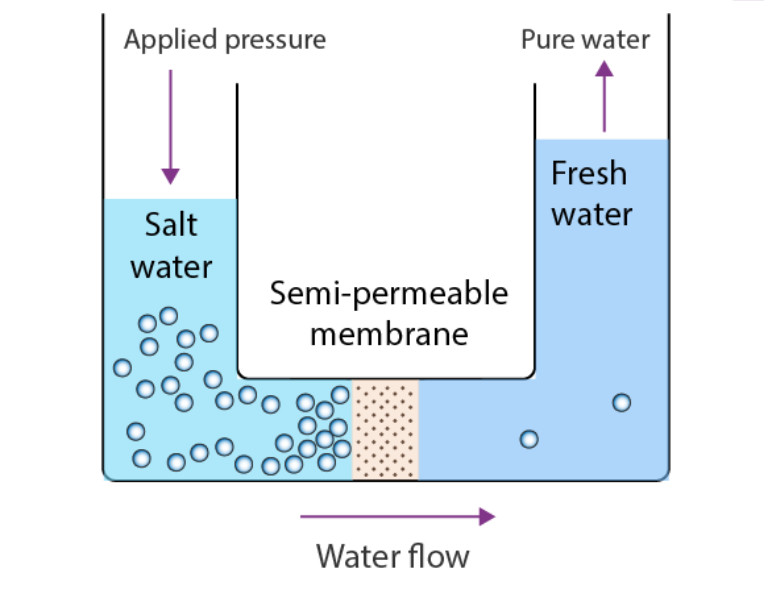
Normally, osmosis is the process by which molecules will pass through a membrane from a weaker-concentrated solution into a stronger-concentrated solution until both solutions are of the same concentration. Reverse osmosis is still the same fundamental osmosis process, it simply involves adding higher pressure to move the water molecules out of the stronger solution (the contaminated water) and into the weaker solution (the pure water).
Reverse osmosis is capable of eliminating dissolved materials from the water in addition to the more visible, visible impurities like silt and bigger organic debris due to the tiny pores in the semi-permeable membrane filter. Reverse osmosis is such an effective water filtration method that it even removes useful minerals from the water. To restore the positive minerals to the water, many reverse osmosis systems run the water back across mineral beds.
Reverse osmosis employs extremely high pressure instead of thermal energy, which is required by other kinds of water purification. For instance, 200 to 400 pressure points per square inch (psi) will be needed to force brackish water—which is saltier than fresh water but not as salty as seawater—through a reverse osmosis membrane in order to extract the salt. Keep in mind that seawater is saltier than brackish water. For comparison, a suburban American home typically has water pressure of 40 to 45 psi.
I. Benefit of RO water filtration
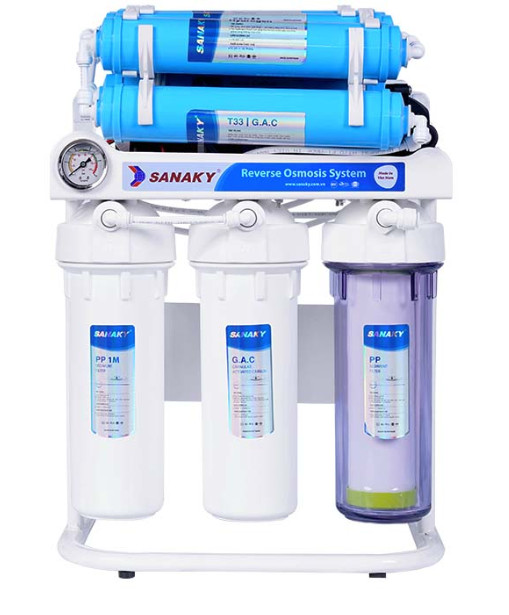
Water filtration systems have become an important part of many U.S. households.
Though a massive number of cities and towns already use reverse osmosis systems for municipal water. Tap water is safe to drink, many homeowners seek additional water purification to make sure the water they drink is safe. Some of the benefits of a reverse osmosis water filtration system include:
1. Reverse Osmosis Filters Nearly All Contaminants
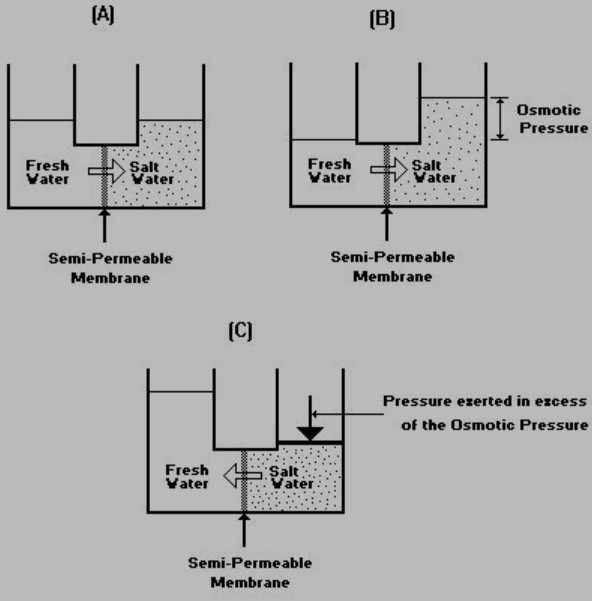
In contrast to other types of water filtration, reverse osmosis is thought to be one of the best methods for completely getting rid of impurities in water. Lead, asbestos, and 82 more toxins can be eliminated by up to 99% even with home-grade reverse osmosis filters. In places where conventional water filtration systems were unable to safely cleanse the drinking water, reverse osmosis systems have put an end to boil water advisories in local communities all over the world.
Reverse osmosis filter membranes are so tiny that they can remove dissolved materials and minerals from the water in addition to the bigger impurities that ordinary water filtering systems capture. This is due to the fact that as water flows through the membrane, it is effectively reduced to simple molecules.
2. Significantly Better for the Environment and Safer than Bottled Water
For communities for which the only other option for drinking water comes from disposable plastic bottles, reverse osmosis may be a safer and more environmentally friendly option. Though reverse osmosis wastes a lot of water (see disadvantages below), piling plastic water bottles up in landfills and polluting during the production of plastic may not be any better.
The quality of water in bottled water has been put into question in the last few years because while the U.S. Environmental Protection Agency (EPA) strictly regulates and supervises the quality of tap water, the U.S. Food & Drug Administration (FDA) has much lighter restrictions on bottled water.
3. Mineral-Less Water May Be Necessary for Certain Uses
While the ultra-purified reverse osmosis water may be more than necessary for households already provided with clean tap water, certain water uses may benefit from water filtered through reverse osmosis. For example, chefs have noticed water filtered with reverse osmosis makes cooking taste better since it lacks the presence of minerals, including municipally-added fluoride.
Pet owners who raise fish and or coral in home aquariums may want to invest in reverse osmosis systems to only give aquatic pets the purest water, free of human contaminants or added minerals.
II. Disadvantages of reserve osmosis water filtration.
Reverse osmosis filtration is among the safest and most efficient methods of filtering water currently accessible, but it is not without its drawbacks. Reverse osmosis systems are expensive and require a lot more water, even if they might be useful in municipal, commercial, or military settings (Navy ships use them to desalinate water for soldiers). These systems might be needlessly wasteful, especially considering that tap water in the majority of American cities is among the cleanest in the world.
1. Wastes Significantly More Water Than It Produces
One of the biggest disadvantages to reverse osmosis water systems is wasted water. Studies show various reverse osmosis systems can waste between 3 and 20 times as much water as they produce. This is both wasteful on an environmental scale and for homeowners whose water bills might be significantly higher than they otherwise would be.
2. Removes Healthy Minerals Present in Water and Decreases PH
Another disadvantage of reverse osmosis water filtration is that the effectiveness with which these systems filter water does not stop at only the bad contaminants. Reverse osmosis will also remove healthy minerals such as calcium, magnesium, potassium and other bicarbonates, as well as municipally-added fluoride which is good for teeth.
Additionally, by removing these minerals, the pH of the treated water decreases, making it more acidic. While this acidity is not significant enough to affect humans, the lower pH water is much more corrosive for plumbing systems and can strip lead and copper from pipes, adding those toxic metals into the water.
3. Costly Installation and Requires Expensive Maintenance
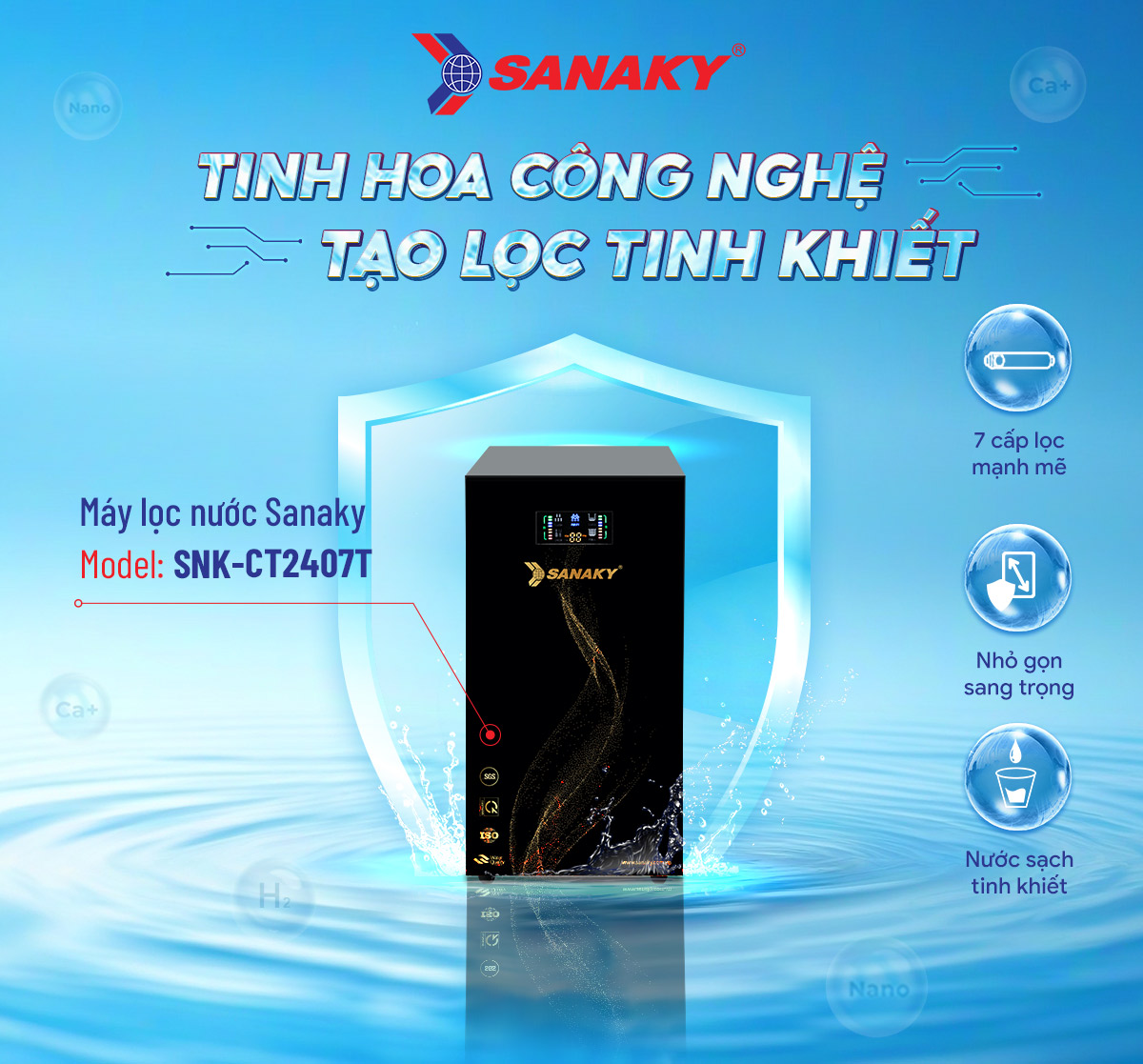
Finally, reverse osmosis filtration systems are expensive. For homeowners, these systems have to be fully retrofitted into houses and while it is possible to do it yourself, it can be a difficult and complex process. Once a reverse osmosis system is up and running it can also be costly to properly maintain and may require professional maintenance to properly ensure safety and effectiveness.
--------------------------------------------------------------------------------------------------------------------------------
SANAKY VIETNAM., CO LTD - Manufacturer of Chest Freezer - Upright Cooler, Transformer, RO Water Purifier...
☎ Hotline: (+84) 986 137 323
Email: henry@sanaky-vn.com
Website: www.sanaky-vn.com
 Vietnamese
Vietnamese  English
English  Chinese
Chinese  French
French  Spanish
Spanish  Russian
Russian  Arabic
Arabic  Portuguese
Portuguese